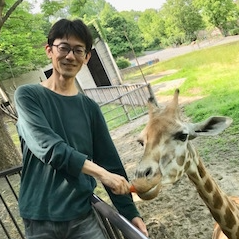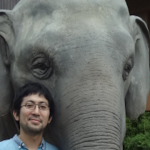Genetics

Staff



Research Projects
The main research focus of our laboratory is to understand how DNA damage response pathways underpin genome stability.
The integrity of our genome is constantly challenged by both internal and external assaults. To maintain genome stability, we possess a variety of DNA repair pathways and DNA damage checkpoints in response to various DNA insults.
Genome instability syndromes result from defects in DNA repair or DNA damage checkpoint are characterized by predisposition to cancer, immunodeficiency, neurodegenerative disorders, short stature, microcephaly and congenital development abnormalities.
To understand the relationship between DNA damage response pathways and genome instability syndromes, we collect cells derived from patients with genome instability (610 cases, September 2015). Our approach is to find novel disease-causing gene alterations from patient's genome using in-house next-generation DNA sequencing technologies as well as high-content screening. Individual candidates of disease-causing mutations are subjected to functional studies using state-of-the-art technologies. In addition to molecular and cellular analysis, we apply animal models to mimic phenotypes observed in patients with genomic instability. Our ambition is to carry the knowledge acquired from basic research to clinical fields such as development of new drugs for patients suffering from genome instability diseases. (Ogi-Group)
Research projects in our laboratory:
- Elucidation of the relationship between DNA damage response and genome instability syndromes
- Clinical diagnosis of genome instability syndromes
- Identification of novel disease-causing mutations
- Construction of databases containing information on genome instability syndromes.
- Development of drugs for patients with genome instability
Selected publications
- Nakazawa Y, Hara Y, Oka Y, Komine O, Heuvel D, Guo C, Daigaku Y, Isono M, He Y, Shimada M, Katoh K, Jia N, Hashimoto S, Kotani Y, Miyoshi Y, Tanaka M, Sobue A, Mitsutake N, Suganami T, Masuda A, Ohno K, Nakada S, Mashimo T, Yamanaka K, Luijsterburg M, Ogi T§. Ubiquitination of DNA Damage-Stalled RNAPII Promotes Transcription-Coupled Repair. Cell, 180(6): 1228-1244 (2020).
- Calmels N*, Botta E*, Jia N*, Fawcett H, Nardo T, Nakazawa Y, Lanzafame M, Moriwaki S, Sugita K, Kubota M, Obringer C, Spitz MA, Stefanini M, Laugel V§, Orioli D§, Ogi T§, Lehmann AR§. Functional and clinical relevance of novel mutations in a large cohort of patients with Cockayne syndrome. Journal of Medical Genetics, 55(5): 329-343 (2018).
- Guo C*, Nakazawa Y*, Woodbine L*, Bjorkman A, Shimada M, Fawcett H, Jia N, Ohyama K, Li TS, Nagayama Y, Mitsutake N, Pan-Hammarstrom Q, Gennery AR, Lehmann AR, Jeggo PA, Ogi T§. XRCC4 deficiency in human subjects causes a marked neurological phenotype but no overt immunodeficiency. Journal of Allergy and Clinical Immunology, 136(4): 1007-1017 (2015).
- Jia N*, Nakazawa Y*, Guo C, Shimada M, Sethi M, Takahashi Y, Ueda H, Nagayama Y, Ogi T§. A rapid, comprehensive system for assaying DNA repair activity and cytotoxic effects of DNA-damaging reagents. Nature Protocols, 10(1): 12-24 (2015).
- Kashiyama K*, Nakazawa Y*, Pilz D*, Guo C*, Shimada M, Sasaki K, Fawcett H, Wing J, Lewin S, Carr L, Li TS, Yoshiura K, Utani A, Hirano A, Yamashita S, Greenblatt D, Nardo T, Stefanini M, McGibbon D, Sarkany R, Fassihi H, Takahashi Y, Nagayama Y, Mitsutake N, Lehmann AR§, Ogi T§. Malfunction of Nuclease ERCC1-XPF Results in Diverse Clinical Manifestations and Causes Cockayne Syndrome, Xeroderma Pigmentosum, and Fanconi Anemia. American Journal of Human Genetics, 92(5): 807-819 (2013).
- Nakazawa Y*, Sasaki K*, Mitsutake N*, Matsuse M, Shimada M, Nardo T, Takahashi Y, Ohyama K, Ito K, Mishima H, Nomura M, Kinoshita A, Ono S, Takenaka K, Masuyama R, Kudo T, Slor H, Utani A, Tateishi S, Yamashita S, Stefanini M, Lehmann AR, Yoshiura KI, Ogi T§. Mutations in UVSSA cause UV-sensitive syndrome and impair RNA polymerase IIo processing in transcription-coupled nucleotide-excision repair. Nature Genetics, 44(5): 586-592 (2012).
(July 21, 2020)
